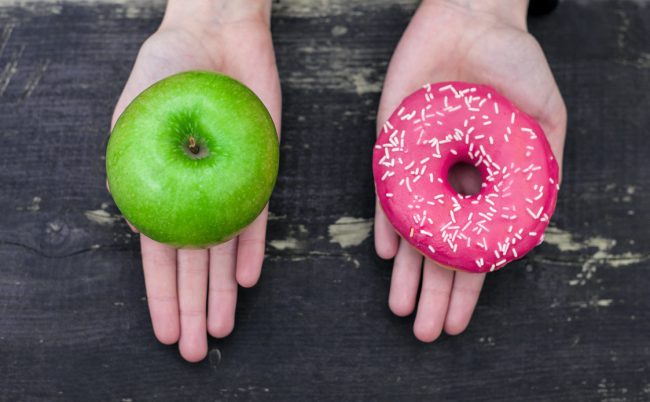A bag of potato chips here, a few too many cans of soda there -- it's easy to fall into poor eating behaviors. However, in trying to mend our ways, we sometimes risk making a bad situation even worse.
March is National Nutrition Month, so we asked two experts to describe the biggest and most common nutrition errors people make – and how to fix them. Here are their top five.
1. Cutting out healthy grains for weight loss
Whole grains are full of fiber, and great for your body, says Jennifer Bruning, a Chicago-based registered dietitian nutritionist and spokesperson for the Academy of Nutrition and Dietetics.
Among other benefits, whole grains:
- Help you feel full
- Banish bloat by keeping you regular
- Lower your risk of heart disease and cancer
- Keep your blood sugar in check
Yet, many people avoid whole grains because of their carbohydrate count. Bruning says that's a mistake.
"Falling prey to the siren song of low-carb diets means you're missing out on all these benefits," she says.
The fix. Try whole grains on salads, pop popcorn with custom seasonings and eat oats for breakfast. Such foods make you "feel full and energized," Bruning says.
2. Skipping meals to lose weight
Many people skip at least one meal each day, hoping it will help them shed a few pounds.
"The concept is very logical – 'I eat less, and I should lose weight,'" says Angel Planells, a Seattle-based registered dietitian nutritionist and spokesperson for the Academy of Nutrition and Dietetics.
But in reality, regularly skipping meals slows down your metabolism, which "essentially sets you on the path towards weight gain," Planells says.
The fix. Eat regularly, but remain laser-focused on controlling portion size. That way, your metabolism will purr along and continue to burn calories.
"Eating small meals and snacks throughout the day with an emphasis on protein and fiber will help keep us satisfied, and keep the furnace burning all day long," Planells says.
3. Changing your diet based on a fad
We live in a time when every new food study promises weight loss or improved health. But Bruning says it's important to look at this research critically.
"Often, headlines or fads are based on a single study, or none at all," she says. "Changing your diet based on this lack of evidence could have negative health results."
The fix. Don't swallow every nutrition and weight loss fad. Bruning urges you to be skeptical of things that sound too good to be true, or that depart from conventional nutrition advice.
"While science is constantly updating and evolving, one single study is rarely enough evidence to support radically changing your otherwise-healthy diet," she says.
If you're confused, talk to registered dietitian to get it sorted out.
4. Avoiding entire food groups
Some people steer clear of all dairy foods. Others shun anything with gluten. But unless you have a diagnosed condition – such as celiac disease or lactose intolerance – you should not avoid specific types of food altogether.
"Avoiding entire food groups can put you at risk for nutritional deficiency when your diet becomes unbalanced," Bruning says.
The fix. Try to eat a well-balanced and healthful diet. "Try making changes like making half your plate veggies at a meal, opting for lower-fat dairy products, making fruit-based desserts or having smaller portions," Bruning says.
5. Switching 'cold turkey' from unhealthful eating to healthful eating
Planells also believes radically altering your diet can be a mistake – especially if you do it too quickly.
He notes that each new year, people pledge to make a fresh start and eat more healthfully. "It works well until about the third week in January, and then it stops," he says.
Many people have formed bad nutrition habits over years, or even decades. Trying to undo those bad ways overnight can trigger stress that sets you up for failure.
The fix. Instead of trying to lose 10 pounds quickly, make longer-term changes to your diet – and do it gradually. "Build up your confidence so that you can feel confident in making healthful changes," Planells says.
For example, add a couple of servings of fruit to your diet each week and work up from there over time, Planells says.
"Behavior change is not going to happen overnight," he says. "To be successful, we have to train like we are preparing for a marathon, not a sprint."




